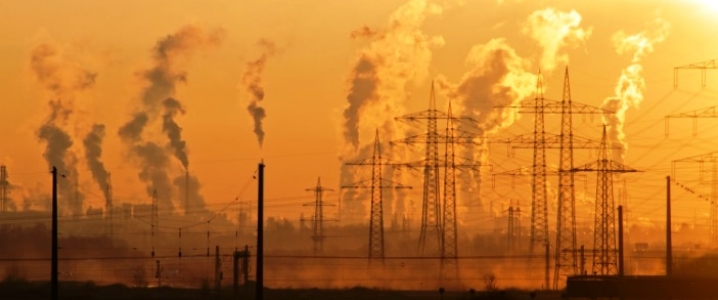Electricity prices in the U.S. (in real terms) have held steady for two decades. A remarkable record achieved because of: cost cutting during the initial days of industry deregulation, the abundance of natural gas that changed the fuel picture for electric generators and the declining cost of capital spurred in part by lower interest rates.
In many industries, underperforming managements often look to fob off poor financial performance by claiming that their business has been uniquely victimized by a "perfect storm". But at least for the U.S.'s investor-owned electric utility industry, weather conditions have been perfect. However, these conditions are changing.
That's the impression we received from a number of financial and economic forecasters at a regulatory conference last week. Like all such so-called experts (ourselves included) they spoke in code — the Averch-Johnson hypothesis, electric rate trackers and the crowd pleaser, appropriate equity risk premiums. But almost uniformly they embraced positions which only permitted one outcome--higher electricity prices for consumers.
The Averch-Johnson hypothesis was proposed by two economists decades ago. And it is not something utility professionals usually dwell on. At least not publicly. Simply stated, Averch and Johnson argued that regulated utilities invested more than necessary in their rate base. Why? Because they were (improperly?) incentivized to do so by their regulators. Related: Iran Pushes Back Against The OPEC Deal
What A and J were pointing out is what we would think of as a classic case of 'gaming the system'. Utility executives, in contemplating future capital expenditures, came to understand that their financial incentives lay in a bigger regulated rate base, i.e. the more assets they had, the higher corporate earnings would be. (A savvy utility executive would only over invest in rate base when their company could earn more than cost of capital. More on that to follow.)
Here’s the point. Our Wall Street colleagues opined that U.S. electric utility senior managements have been promising shareholders that they would grow corporate earnings by 5 percent per annum. In order to do this, they have to invest in assets, that is, keeping their regulated rate base growing at approximately that rate.
But there is always something. Kilowatt-hour sales growth in the electric business is close to zero.
The only way (after typically modest productivity gains) to attain earnings growth even remotely approximating the 5 percent level is to simply raise prices. This business no longer has the volume growth to cover the additional capital investment costs without it.
Next, the conversation turned to so called "trackers". A tracker is an automatic addition to the customer's bill that does not require rate hearings before the utility commission. Gas utilities, for example, requested and received trackers to cover the relatively high costs of installing replacement pipes (because without sales growth they could not cover the costs of new pipes without constantly seeking rate relief).
Water utility companies, which show no sales growth either, also need incremental revenues for their own pipe replacement efforts. Some of this vital infrastructure has passed the century mark. Hence, these utilities also want trackers so as to avoid the cumbersome process of asking state regulators for rate hikes every year.
Electric companies have had trackers of various sorts in the past for fuel costs and for real estate taxes for instance. Trackers make it easier for regulators and utilities to raise prices in small increments, meaning with less notice. However, typically the more trackers there are in place, the more consumer price goes up.
Lastly let's turn to our favorite: the issue of an appropriate equity risk premium. That is, the difference between the yield on a risk-free security (a 10-year U.S. treasury bond, for example) currently yielding about 3 percent and the yield or return the required by investors for the additional risk of owning an equity stake in a utility.
The gap or so called spread between risk free U.S. bond yields and what regulators currently permit utilities to earn may be at a record "wides". In other words, utilities are being permitted to earn far more than they need to in order to simply attract capital. But if nothing else it certainly incentivizes managements to invest in their rate base.
Related: What Is A ‘Fair’ Price For Oil?
If interest rates continue their upward trajectory as we suspect, that would raise cost of capital for utilities. (Bond yields can be seen as a floor and equity returns get layered on top.). That in turn would raise the allowed rate of return for equity investors which means higher prices.
We would have argued that regulators should not permit allowed equity returns to rise for a while even if interest rates do. Why? Because allowed returns are so high right now on a historical basis relative to risk free securities. But we were struck by hearing regulators who seemed puzzled by the concept of the equity risk premium. This suggests they will grant their utilities rate increases sooner than we would have thought.
ADVERTISEMENT
The tea leaves seem to tell us that after a relatively long period of stability, electricity prices will soon rise, perhaps quickly. Interest rates are moving up. And on the commodity front, oil prices have been on the move as well. This is likely to affect utility fuel costs both directly and indirectly. (New England for example burned several million barrels of oil to produce electricity last year.) When we add in recent legislative moves to prop up aging, uneconomic power stations, we have even more reason to think so.
As this conference was held in New Orleans, we couldn't help thinking that it's the utility customer who might be gettin' the blues.
By Leonard Hyman and Bill Tilles
More Top Reads From Oilprice.com:
- Is This The Most Bullish Oil Market Of All Time?
- Higher Oil Prices Could Unleash Market Turmoil
- Oil Prices Dip On Crude, Gasoline Build


















